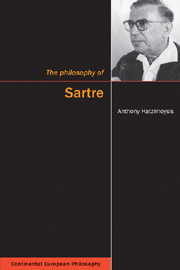3 - The ego
Summary
Philosophical tradition has it that where there is thinking, there is an “I” that thinks. This “I” is sometimes seen as an entity dwelling within the mind, an immaterial substance whose activity constitutes our conscious life. Some other times, the “I” is considered as a formal principle that synthesizes disparate perceptions or ideas into complete thoughts. Either way, the I is at the heart of consciousness, sustaining the creation, reception and manipulation of mental content: without an I, conscious activity seems to collapse. Sartre thinks that tradition has it wrong: the I could not be residing inside consciousness since consciousness has no inside. If the I exists, it can only exist “outside, in the world” (TE 1; LTE 13).
The Latin transliteration of the first personal pronoun in Greek is “ego”, and that is the favourite way for many philosophers to refer to important aspects of our self, both as the initiator of thoughts, volitions or actions – what I do – as well as the seat of sensations, feelings or passions – what occurs in me. Sartre's critique applies to both sides of the ego, with special emphasis on the ego as the alleged leader of our conscious life. For Sartre, the ego is not the subject of, but an object for consciousness and depends on the latter for its existence.
In reversing the traditional priorities between consciousness and the ego, Sartre employs some important distinctions between different modes of consciousness.
- Type
- Chapter
- Information
- The Philosophy of Sartre , pp. 23 - 40Publisher: Acumen PublishingPrint publication year: 2011

